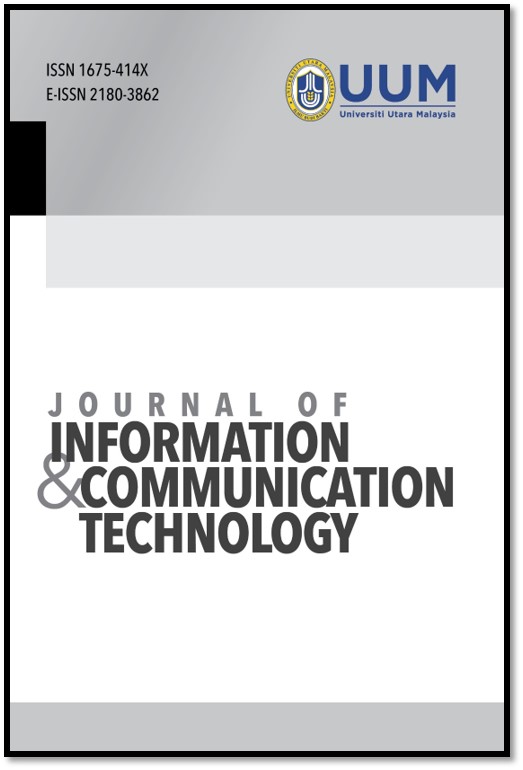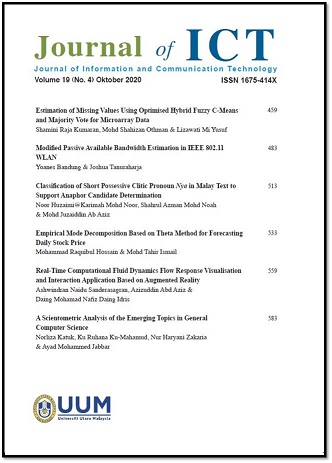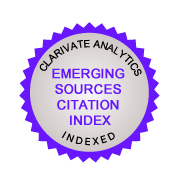Opinion Mining and Perceptions of Self-Determination in Videoconference Classrooms Using Machine Learning and Multidimensional Sentiment Frameworks
DOI:
https://doi.org/10.32890/jict2025.24.2.2Abstract
This study provides a comprehensive analysis of learner sentiments regarding learning in videoconference (VC) environments, highlighting critical areas for improving digital education. In the mixed method approach, Azure Machine Learning's (AML) three-category sentiment analysis as a quantitative approach is enhanced by a multidimensional sentiment model as a qualitative approach to analyse learner feedback. The sentiments are mapped onto the Self-Determination Theory (SDT) framework to highlight how autonomy, competence, and relatedness influence learner sentiments. Open-ended feedback to a prompt from 268 respondents across different education levels provided textual data captured through a Google form. AML provided sentiment scores that indicated the direction and type of sentiments. Combining with thematic analysis based on 5 sentiment categories enables the generation of richer and deeper insights into learner feedback. Findings indicate mixed user sentiments, with flexibility (autonomy) praised but technical issues and limited interaction (low competence and relatedness) criticised. Findings suggest enhancing interactivity, addressing technical barriers, and fostering engagement to improve learner experiences and meet diverse educational needs in digital classrooms. AML provides a broad sentiment classification with confidence scores that are more relatable and reliable. While recognising the overlapping sentiment categories in the two models, the approach offers more actionable insights for educators and platform developers. AML’s model could benefit from incorporating more granular sentiment categories to capture the complexity of user feedback better. The study enables a broader view of the user's need to provide more useful information to developers, policymakers, and instructors regarding using VC and other online platforms for teaching.


 2002 - 2020
2002 - 2020

























